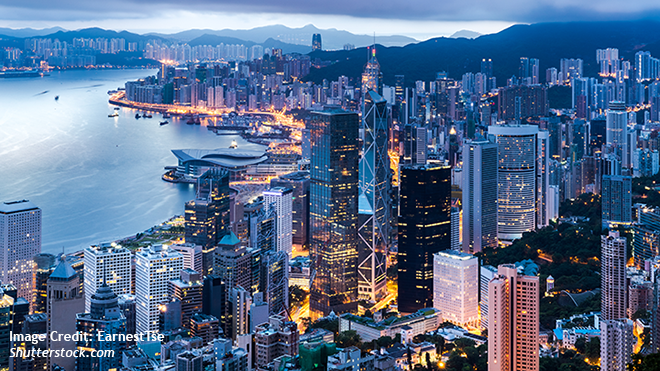What Does the Chief Executive Election Mean for Hong Kong People?

John Lee’s election as Chief Executive of Hong Kong demonstrates what elections mean now in Hong Kong as well as Beijing’s hardline policy towards the territory.
The pro-democracy movement refused to take part in the elections to the Legislative Council and the Election Committee constituted for the election of the Chief Executive in the past year after their “perfection”. Members of the Election Committee subsequently were advised against indicating any endorsement of the candidates. When Beijing finally made the decision, they were summoned to the Central Liaison Office and told that there would only be one candidate and they should show their support.
Abandoning previous practices
The previous practice of the local establishment being consulted by the Chinese authorities had clearly been abandoned. The people of Hong Kong understood they had no role to play and their preferences would not count. Hence there was little interest not only in the election but in the policy program of the new administration as well.
The policy program was considered hollow even by the establishment. There are the usual pledges of improving the housing situation and medical services for the community; Lee also raises the issue of the upward social mobility of young people in crowded accommodation. They are not controversial, but Hong Kong people have no confidence in their effective and timely implementation.
The authoritarian orientation of the John Lee administration is quite clear though. He has already indicated that he would soon introduce the Article 23 legislation which had been shelved in 2003; and he would restrict the use of crowdfunding by civil society groups. Legislation against fake news would also be introduced sooner than later by his administration. There is no doubt that he will closely follow the guidance from Beijing, which is expected to be frequent and more detailed.
Building a National Security Narrative
Though Lee seldom mentioned national security in his short campaign, upon his election, he declared that he would protect national sovereignty, national security and national development interests. He further indicated that Hong Kong is still threatened by interferences from external powers and hidden domestic destructive forces. These appear to be justifications for a crackdown, when required.
In response to Lee’s election with 99.16 percent support of the Election Committee, the European Community and the G-7 have both indicated their regrets. They stated that the election violated the principles of democracy and political pluralism.
Both the Commissioner’s Office of China’s Foreign Ministry in Hong Kong and the Hong Kong government strongly protested against these foreign commentaries, terming it as slander. They seem to follow the Beijing line of confrontation with the Western countries; more significant still, they seem to indicate that Hong Kong is ready to pay the price in this confrontation in terms of deteriorations in its business environment.
As a career police officer, John Lee obviously lacks experience in finance and foreign economic affairs. Hence his cabinet lineup has attracted a lot of attention. There is considerable speculation that more officials from the disciplinary forces will join the leadership team, including the position of Chief Secretary for Administration.
The administrative officers corps traditionally cultivated to lead since the colonial era appear to be losing status and their predominant role in the government. Meanwhile, pro-Beijing political parties are demanding for positions as they have been offering strong support for the disciplinary forces and been critical of the administrative officers.
When John Lee begins his term on July 1, the pandemic situation is not likely to have improved much as Hong Kong has to follow Beijing’s “zero Covid approach”. Economic growth is expected to be only 1 to 2 percent in 2022. It will be difficult for the John Lee administration to secure legitimacy by performance in the short term. The people of Hong Kong realize that the territory will be increasingly like any major city in China.